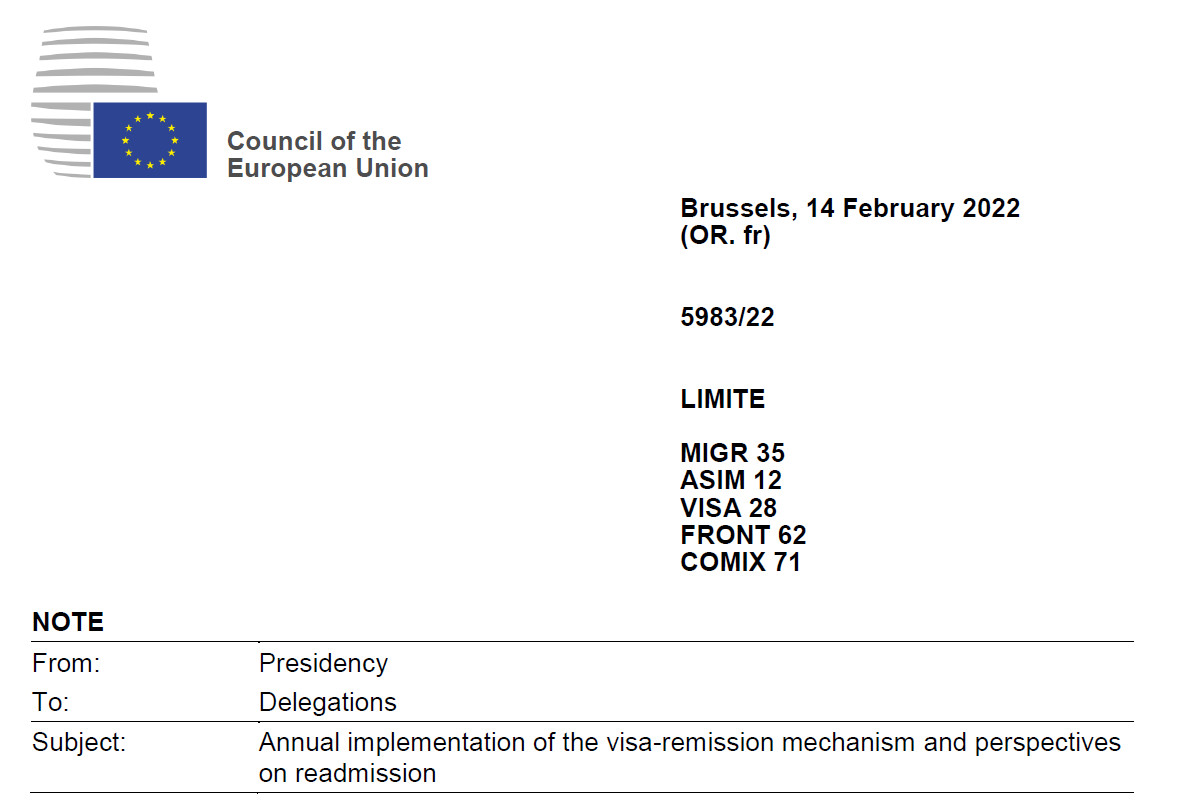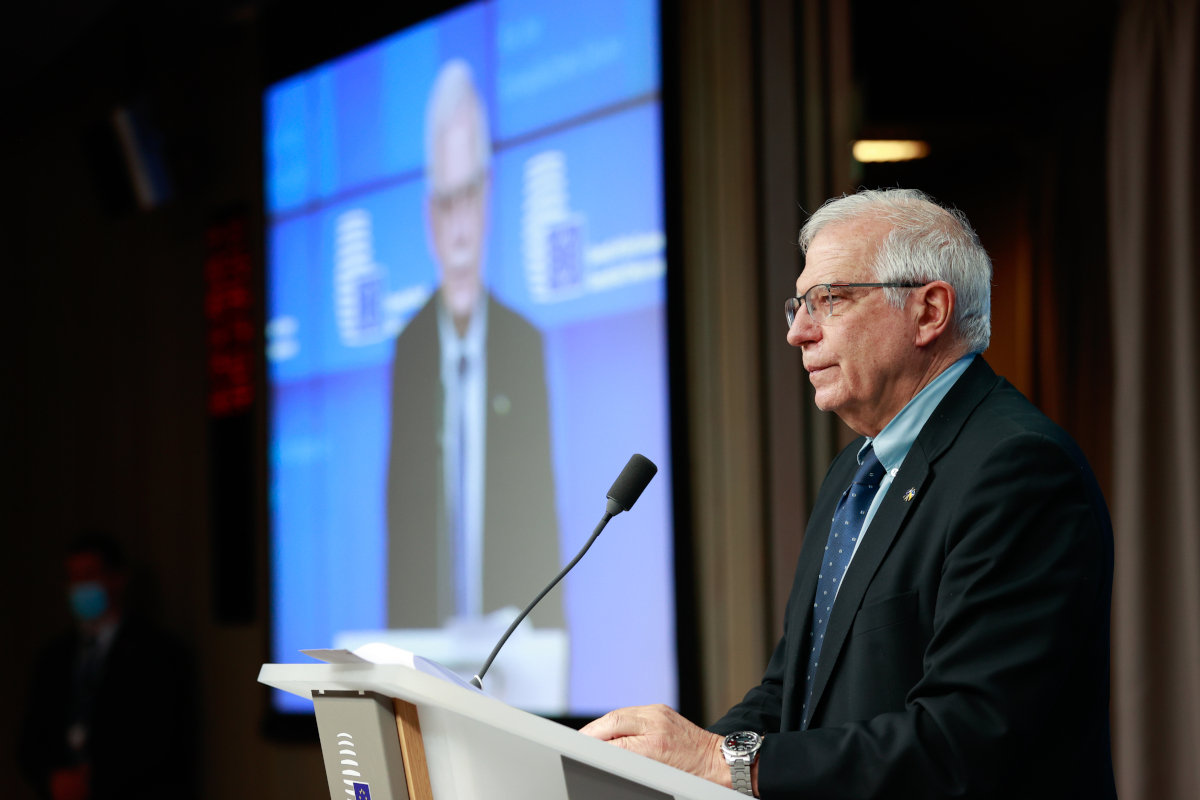EU: Linking development aid to deportation compliance under discussion in the Council
Topic
Country/Region
17 March 2022
A note from the French Presidency of the Council on the annual implementation of the visa readmission mechanism discusses "the place of readmission levers in the overall management of the relationship with third countries".
Support our work: become a Friend of Statewatch from as little as £1/€1 per month.

A Council Presidency document (pdf) to member states, one which insists on non-EU state cooperation on return and readmission as "one of the cornerstones of the Pact on Migration and Asylum", requests member states' views on "the various levers that can be mobilised... in order to improve the effectiveness of readmission in practice".
The Presidency requests member states' views on levers to be mobilised to increase third country acceptance of deportations, including using "programming of NDICI through a flexible incentive approach," legal migration and visa facilitation, trade, and political and diplomatic engagement.
NDICI - the Neighbourhood, Development and International Cooperation Instrument - is a fund designed to "to support countries most in need to overcome long-term developmental challenges", though 10% of the fund (almost €8 billion) is earmarked for "actions supporting management and governance of migration and forced displacement".
As the European Council on Refugees and Exiles has noted:
"Cooperation on migration is to be reviewed annually and could result in adjustments of funding allocations which, as argued elsewhere, undermines the purpose of development assistance, leads to less effective spending, and is unlikely to reach the desired objective."
Article 25a of the EU’s Visa Code, in force since 2020, provides for a monitoring mechanism under which the issuance of visas can be restricted or made more difficult for "applicants or categories of applicants who are nationals of a third country that is considered not to be cooperating sufficiently" with readmissions.
Despite stating that "the issuance of restrictive visa decisions must respect the principle of proportionality and remain a last resort," the Presidency document also insists that "article 25a is part of European legislation and its implementation should not be seen as exceptional".
An informal meeting of EU interior ministers was held in Lille on 3 February, during which ministers encouraged the "gradual approach" of the Presidency to implementing the Pact, the first stage of which "must include efforts and tangible progress in the field of return and readmission."
The Commission published its second report on implementation of the Visa Code in December 2021, analysing 32 non-EU states’ cooperation on readmissions from the EU. Member states agreed on 10 countries of interest due to low cooperation on readmission. Member state representatives in the Council's IMEX (Integration, Migration and Expulsion) working party agreed on the need to strengthen "demarches" to these states. Depending on the results and EU relations with the 10 states, the Commission may propose to the Council implementing decisions to either restrict or grant facilities for issuing short-stay visas.
Member states are also asked to reflect on how MOCADEM can contribute to the mobilisation of other possible levers, and to provide an assessment of the visa readmission mechanism implementation for 2019.
Documentation
Further reading
- 9 March: EU: Deportations: overview of readmission cooperation in key countries
- 26 January: EU: Tracking the Pact: Border checks, funding, deportations and reception at the centre of the "gradual approach"
- 18 January: EU: Tracking the Pact: French Presidency proposes "a gradual approach" on migration and asylum
- 27 September 2021: Council of the EU: Discussion paper on "gaps and opportunities" in EU return policy
- 14 April 2021: EU moves ahead with plans to use visa policy as "leverage" to increase deportations
Our work is only possible with your support.
Become a Friend of Statewatch from as little as £1/€1 per month.
Spotted an error? If you've spotted a problem with this page, just click once to let us know.

